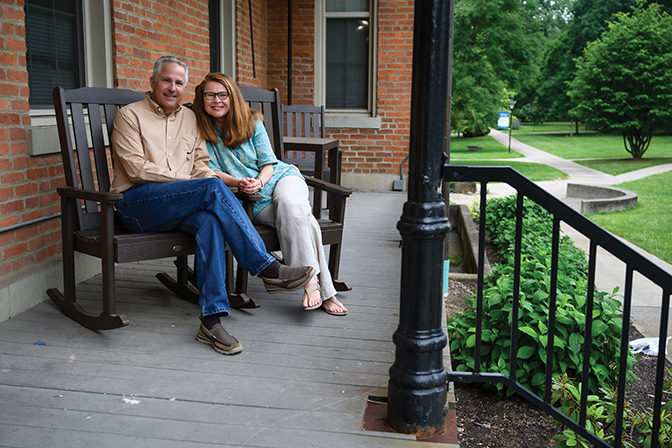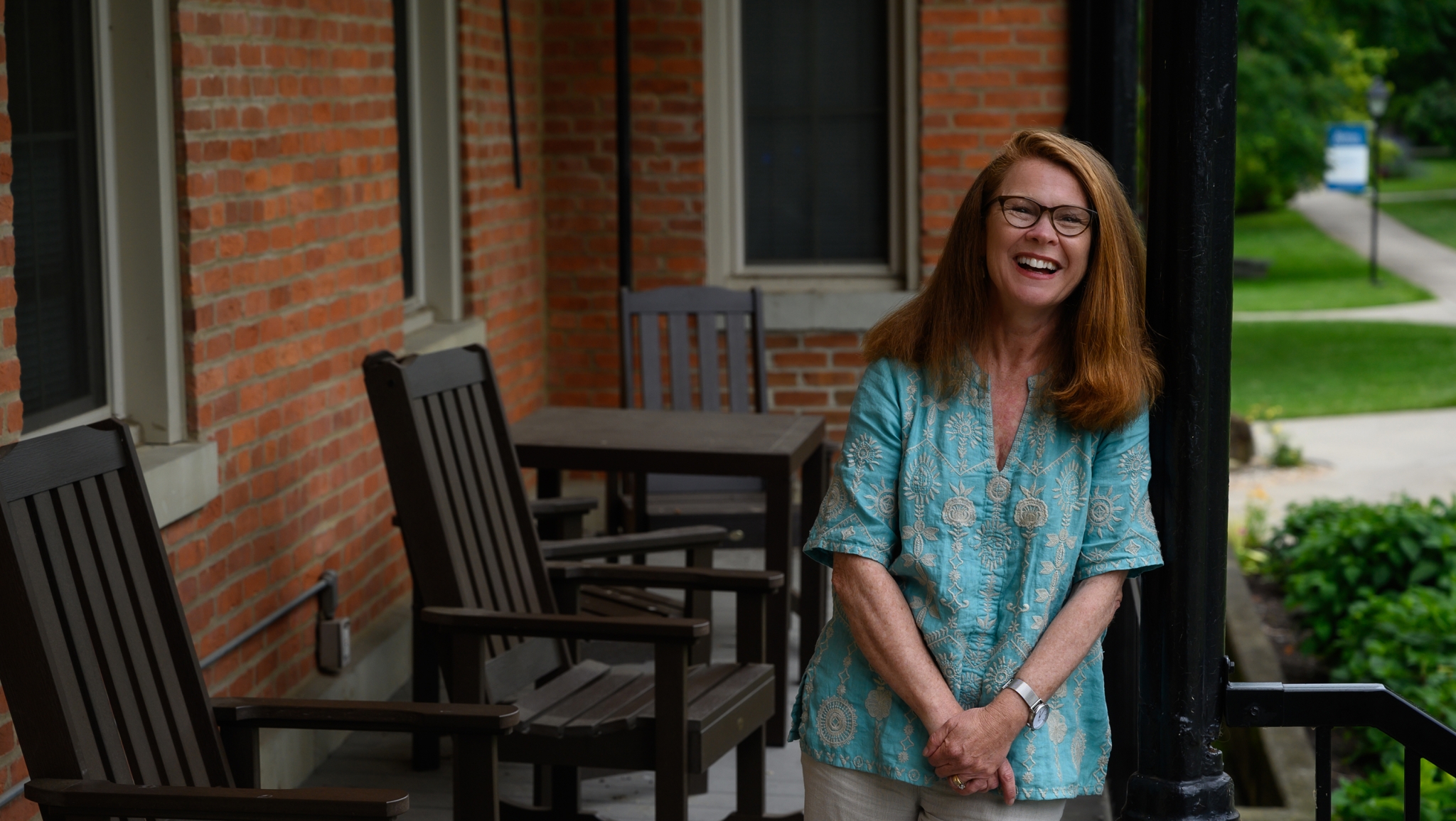In the early part of the 1980s, as Jodi Gentry ’87 was thinking about college, her options were not limited. Though living in rural Florida in a single-income household, she had never experienced poverty. Gentry’s educated parents had taught her the power of education, and they believed, as she approached college, that the work ethic she would develop at Berea College would serve her well. Of course, they knew firsthand what to expect from Berea, because they were products of Berea themselves—Jacquelyn Blair Gentry ’60 and Frank Gentry ’59 had met and married at Berea College nearly three decades before.
“I couldn’t have predicted how things would have gone in 1983, but Berea’s been with me all along,” Gentry said. “My origin story is not one without options. However, Berea was an incredible option for me and transformational on many fronts.”
At 17 years old, Gentry boarded a plane and left home alone for the first time in her life. She stepped off that plane to a waiting John and Becky Cook—Berea’s admissions director and his wife—who introduced her to Berea’s welcoming and supportive environment.
“Berea was very welcoming,” Gentry said. “I had a roommate with whom I lived all four years. There is a certain independence that happens when you’re that far from home, but there is enough structure that you don’t lose your way. And I was surrounded by people who were welcoming and supportive out of the gate, and I had a community from the beginning.”
As Gentry navigated her way through Berea, she majored in English and worked two years in Admissions and then went on to become the business manager for a theological journal in the Philosophy and Religion department.
“During this time at Berea, these experiences instilled in me a deep appreciation for the range of professions and people, in addition to exceptional faculty, that higher ed requires to fulfill its mission,” Gentry said. “It was foundational in clarifying the transformational impact that education can have on an individual and, by extension, a family and community. Berea became my compass and allowed me to form a narrative about the value of education and work. And it influenced my thoughts on equity and inclusion. It became part of my general ethos.”

Gentry carried those convictions with her into graduate school at the University of Florida (UF), where she earned a master’s degree in public relations while serving as a graduate assistant and so continued to work as a contributing member of higher education. While at UF, Gentry completed an internship in Human Resources, which eventually opened the door to her career. Her time in HR made her aware of the knowledge, skill and behaviors employees need in a workplace, and she was intrigued. Her internship led to a position as HR’s professional communicator. She then took on training responsibility and moved up to a leadership role in that area. Gentry left UF for a short time but was recruited to come back and eventually was promoted to the top role, vice president of University of Florida Human Resources.
For Gentry, Berea’s work program was a powerful part of her education. She sees the intersection of knowledge and capability as an important component of the impact higher education can have on a life.
“Berea is a handshake, not a gift,” Gentry said. “There’s a handshake of the work you do and the incredible endowment that Berea uses in a savvy way that distinguishes it among its peers across the country. That handshake and understanding the value of contributing to the place where you’re also learning was transformational for me.
“It’s the idea that education is available and working alongside of that is how you navigate life and become a person that you can be proud of what you accomplish,” she continued.
The value of free is about making education more meaningful for all,” she added. “And for me, it’s that handshake. The skills and life experiences you gain—that’s the value of free.
Jodi Gentry ’87
The connection of work and education followed Gentry throughout her career, until her retirement early this spring. And as she reflects on the full circle of her life, she sees that Berea did, indeed, give her a gift.
“I didn’t even realize at the time the incredible gift that being debt-free has for someone—it gives you more options,” Gentry said about how Berea set her up for a successful career. “I had the option to go to grad school without fear—I knew I could manage that. It positioned me to be able to pursue grad school and other education, and that translated to a professional life for me of more than 30 years at the University of Florida. All because I didn’t have the immediate obligation of trying to figure out how to repay that debt.
“The value of free is about making education more meaningful for all,” she added. “And for me, it’s that handshake. The skills and life experiences you gain—that’s the value of free.”


